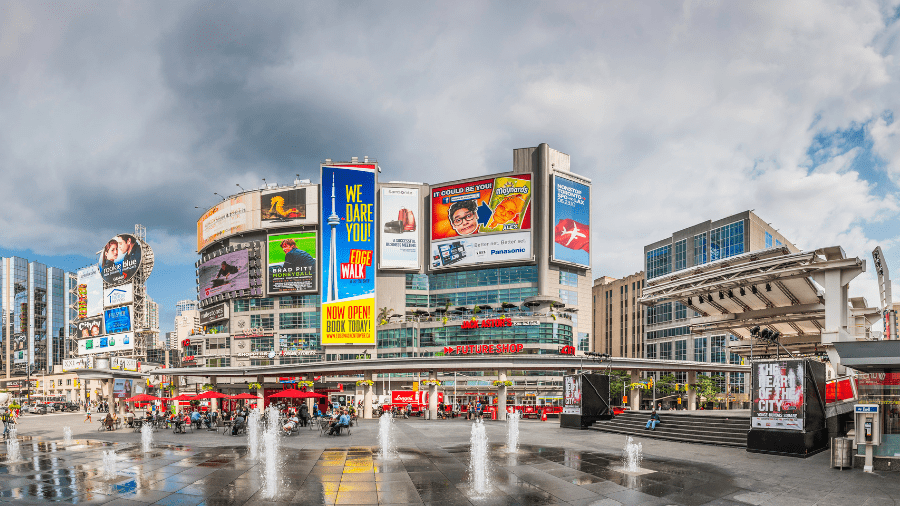The article originally appeared in the National Post.
By Patrice Dutil, January 30, 2023
It’s an issue that won’t go away. Toronto city councillors must now decide what to do about the name of Dundas Street.
Back in 2021, council voted to rebrand the 220-year-old thoroughfare after an emotional debate about its namesake Henry Dundas, and his supposed efforts to perpetuate slavery. Councillors knew that changing such a prominent name would cost taxpayers $10 million or more, including at least $1.6 million to the city’s cash-strapped transit system.
What council did not do was decide on a new name. That contentious discussion was put off for another day, which is expected in the coming weeks.
In the 18 months since then, accusations about Henry Dundas have been discredited. Historians from around the globe have shown that Dundas was actually an abolitionist, repeatedly fighting on behalf of enslaved peoples, Indigenous peoples and minorities in distress.
The updated information was heard — everywhere but in Toronto. Last year the city council of Mississauga, Ont., voted against renaming its three-kilometre stretch of Dundas Street. The town of Dundas, Ont. (now part of the City of Hamilton) and the united counties of Stormont-Dundas-Glengarry in eastern Ontario will not change their names. Belleville will not renounce its Dundas Street, nor will other Ontario centres including London, Whitby, Burlington and Oakville.
What happened?
First, as the matter gained public awareness, people realized that the “issue” was faked. Most people had never even heard of Henry Dundas, and the street moniker was generally assumed to be one of many broad references to Toronto’s Anglo-Saxon heritage, much like streets named Bloor, Christie, Jarvis, Jameson and so on.
It also became evident that city hall staff tasked with investigating this file were inexperienced in handling such complex work. Rather than provide councillors with unbiased background, the staff report placated a handful of activists using Dundas Street as a step to “decolonize” the city. It produced a brief six-paragraph “report” riddled with inaccuracies that distorted the background of Henry Dundas and any significance he had to Toronto.
Governments typically refer legal matters to lawyers, structural matters to engineers and public health issues to doctors. Likewise the task of “commemoration” should be overseen by individuals with relevant expertise and the ability to engage objectively with the entire community. The city did not use knowledgeable resources prior to the 2021 vote, and thus looked foolish as the decision came under increasing scrutiny.
Staff further compounded the problem with a distorted consultation plan focused on communities that were readily predisposed to accepting the accusations against Dundas. Instead of consulting with impartial experts, city staff adopted a secretive closed-door process and bullied the business community into accepting its view of history. Any public support that existed at the time of the vote began to evaporate as more accurate historical facts emerged.
For the record, Henry Dundas — a British political figure in the late 18th century — was also a lawyer in his native Edinburgh who won a landmark case defending Joseph Knight, a young Black man who had been enslaved in Jamaica and taken to Scotland.
A man who stood up for displaced Highlanders as well as the enslaved, Dundas took inspiration from Sir Guy Carleton’s Quebec Act of 1774 which showed Britain could learn to live with Catholics, at least in the context of its large majority-French colony. Dundas was actually responsible for Canada’s first policy of bilingualism: As Britain’s Home Secretary, he ordered the government of Lower Canada (today’s Quebec) to support the pleas of Canadien politicians, ensuring that laws introduced in the Legislative Assembly be written in French and all bills be presented with translation.
In 1791 Dundas appointed Revolutionary War veteran John Graves Simcoe as lieutenant governor of Upper Canada. Simcoe’s first priority was to abolish slavery and the slave trade in Upper Canada — the first territory of the British Empire, and thus in the world, to do so. He approved the Act to Limit Slavery in Upper Canada in July 1793, partly in retaliation at the U.S. Congress’s Fugitive Slave Act of February 1793.
Reflecting the spirit of his friend Dundas, Simcoe pointedly welcomed Black freedom-seekers to Upper Canada, entrenching a tradition that would extend to the Underground Railroad of the 1850s and 1860s.
Regarding today’s Toronto debacle, the lesson is that history matters — a full, complete history. A guiding rule should be that any changes — including street names — be made with broad, fair and inclusive consultation, and the evidence be thoroughly researched and clearly presented. Dundas Street should remain unchanged.
Good policy design demands that best practices be adopted so that commemorations will elevate the city, not diminish or divide it. After all, Toronto is a city of many great accomplishments that deserve to be remembered.
Patrice Dutil is a Professor of Politics and Public Administration at Toronto Metropolitan (formerly Ryerson) University and a Senior Fellow at the Macdonald-Laurier Institute.






